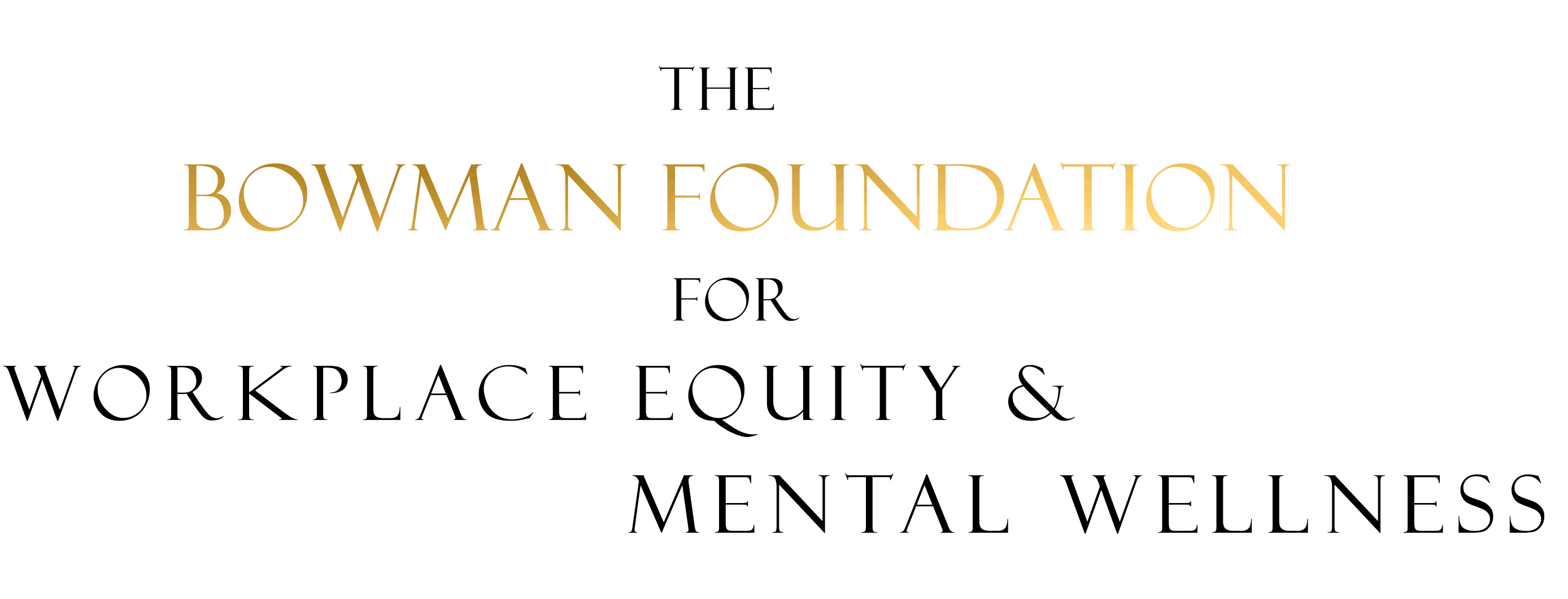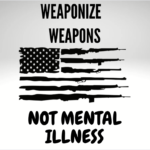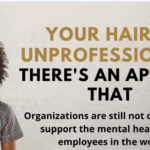By: Natasha Bowman, JD
DON’T TALK ABOUT MENTAL HEALTH AT WORK!
Here’s the scenario. An employee approaches their manager to discuss their mental health struggles. The manager sees where the conversation is going and quickly dismisses the employee by advising them to call Human Resources or E.A.P., also known as Employee Assistance Programs. It took confidence and courage to share such a personal issue, but the lack of engagement by the manager left the employee feeling humiliated, embarrassed, and unheard. The truth is that most human resources professionals have advised their managers not to have conversations with their employees about their health conditions, be it physical or mental. This is because managers don’t use their knowledge about an employee’s health when making employment decisions. But is this advice applied equitably? Probably not.
Think about this. An employee enthusiastically informs their manager that they are pregnant. Their manager will likely share their enthusiasm. They would want to know all the details: When are you due? Do you want a boy or a girl? Are you having cravings? The same is true for other medical conditions. If an employee informs their manager that they’ve been diagnosed with cancer, their manager would jump into a place of empathy, offer their unwavering support, and check in with them along the way. But we all know this is not the case when sharing mental health conditions. As stated earlier, an attempt to discuss your mental health with your manager will likely be dismissed. You go to H.R. or call E.A.P. as advised; you still have unaddressed concerns that only your manager can help you resolve. This scenario is a common occurrence in workplaces across America. So, what’s the clear message that is sent? DON’T TALK ABOUT MENTAL HEALTH AT WORK!
The truth is that most managers (and H.R. professionals) don’t feel comfortable talking to their employees about their mental health. Managers need to be trained on how to have these conversations and know how to be empathetic, supportive, and non-retaliatory. To accomplish this, The Bowman Foundation for Workplace Equity and Mental Wellness has created a very simple acronym to follow when someone approaches you with a concern about their mental health. All you have to do is C.A.R.E.
C- Concern– The first thing a manager should do when approached with a mental health issue is to show concern. Don’t be quick to make assumptions, pathologize, or dismiss an employee to an outside resource. Show your employee that you are genuinely concerned for their mental-wellbeing and want to be an active part of their healing.
A- Awareness– Actively listen to what your employee shares with you so that you are fully aware of what they are experiencing and how you can support them. If needed, conduct additional research about their mental health condition as this could be useful for eliminating bias and making uninformed assumptions about their capabilities.
R- Resources– Know what resources you already have for your employee’s mental well-being. If your resources are inadequate at your organization, work with your H.R. partner to determine if you can obtain the resources the employee needs. Be careful not to overstep any boundaries here. We are not advising that you act as a therapist or mental health provider.
E- Empathy– It is often easy to empathize with illnesses and conditions with which we are familiar. As you listen to your employees’ mental health experiences, try to put yourself in their shoes. What would you need from your manager in this situation? What would empathy look, feel, and sound like for you or a loved one?
Creating safe spaces for dialogue about mental health doesn’t have to be challenging or complex. You do not need a policy, strategy, or initiative; you just simply need to C.A.R.E.




